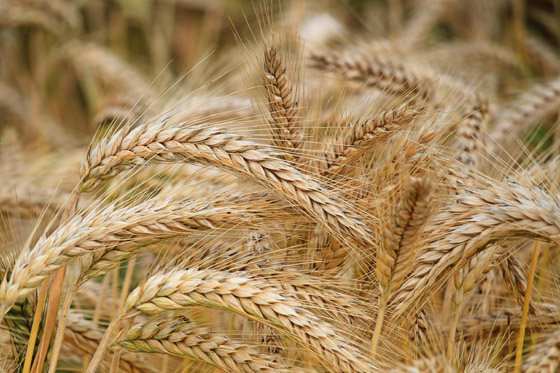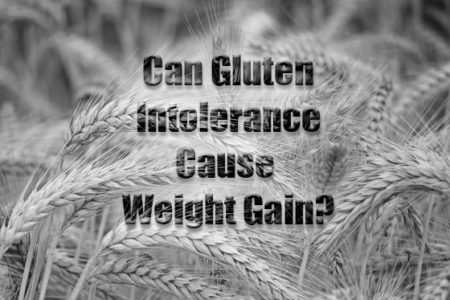What is gluten intolerance?
Can gluten intolerance in many cases not be the gluten but other problems that make you sensitive to gluten? That’s A Good Question.
Today we will look into this a little closer. Gluten intolerance, also known as celiac disease, is a condition where the body cannot tolerate gluten, a protein found in wheat, barley, and rye. People with gluten intolerance often experience symptoms such as bloating, diarrhea, and stomach pain after consuming foods containing gluten. While weight loss is a common symptom of gluten intolerance, some people may actually gain weight as a result of their condition. We will look into this now.
Understanding Gluten Sensitivity
Gluten intolerance is a serious autoimmune disorder that affects the digestive system. When someone with gluten intolerance consumes gluten, their immune system mistakenly attacks the lining of the small intestine. This can lead to inflammation, damage to the intestinal lining, and malabsorption of nutrients. As a result, people with gluten intolerance may experience symptoms such as weight loss, fatigue, and nutrient deficiencies.
However, some individuals with gluten intolerance may actually gain weight due to a variety of factors.

Factors that Can Cause Weight Gain in Gluten Sensitivity
One factor that can contribute to weight gain in individuals with gluten sensitiviy is the consumption of gluten-free processed foods. It is important to understand that any gluten-free products on the market are highly processed and contain added sugars, fats, and calories to improve flavor and texture. These products can often be higher in calories, contain white flours and less nutritious than their gluten-containing counterparts, leading to weight gain in some individuals.
Another factor that can contribute to weight gain in gluten intolerant individuals is the presence of other food intolerances or sensitivities. Some people with gluten sensitivities may also be sensitive to other foods such as dairy, soy, peanuts in perticular or eggs. Consuming these foods can trigger symptoms similar to those caused by gluten and may contribute to weight gain. Individuals with celiac disease need to identify and eliminate any other food intolerances or sensitivities to effectively manage their condition.
Managing Weight in Individuals with Gluten Sensitivity
If you’re troubled with gluten intolerance and are experiencing weight gain, it is important to work with a lifestyle healthcare provider or registered dietitian to you find the cause of your celiac disease problems and develop a safe and effective dieat plan. This may involve eliminating processed gluten-free foods from your diet, identifying and eliminating other food intolerances or sensitivities, and focusing on whole, nutrient-dense foods. Incorporating regular physical activity, managing stress, and getting adequate sleep can also support weight management in individuals with gluten intolerance.

So in conclusion, while weight loss is a common symptom of non-celiac gluten sensitivity, some individuals with this condition may actually gain weight. Factors such as the consumption of processed gluten-free foods, other food intolerances or sensitivities, and poor dietary habits can contribute to weight gain in individuals with gluten intolerance. It is important for individuals with celiac disease to work with lifestyle healthcare providers to develop a personalized plan to not just manage the symptoms but to help you find the cause and being the treatment for reversing celiac disease and maintain a healthy weight. By focusing on whole, nutrient-dense foods and identifying and eliminating other dietary triggers, (most likely the white flours, refined foods) individuals with gluten intolerance can effectively manage their condition and support their overall health and well-being. (Recommended reading The How Not To Die Cookbook offered at Amazon)
Are Refined Foods Killing You With Extra Weight Gain?
The Insidious Link Between Refined Flour, Diabetes Onset And OverWeight
Join our newsletter for insightful information into lifestyle living, weight loss and other health issues.
**Disclosure Statement:** Make Money With Max Online promotes affiliate marketing products or services to help save you vital time when searching for courses or products that work.
This means that when you click on an affiliate link provided on our website and make a purchase, we may cost you.
We only recommend products or services that we believe in and have used ourselves. The commissions we earn through affiliate marketing help support the maintenance and growth of our website, allowing us to continue providing valuable content to our readers. Please note that our information and recommendations are solely based on our own experiences and research. Your own experience with any products or services recommended on our website may vary. Thank you for supporting Make Money With Max Online by using our affiliate links. Your support helps us continue our mission of helpful and honest information to our readers.




One thought on “Can Gluten Intolerance Cause Me to Gain Weight?”